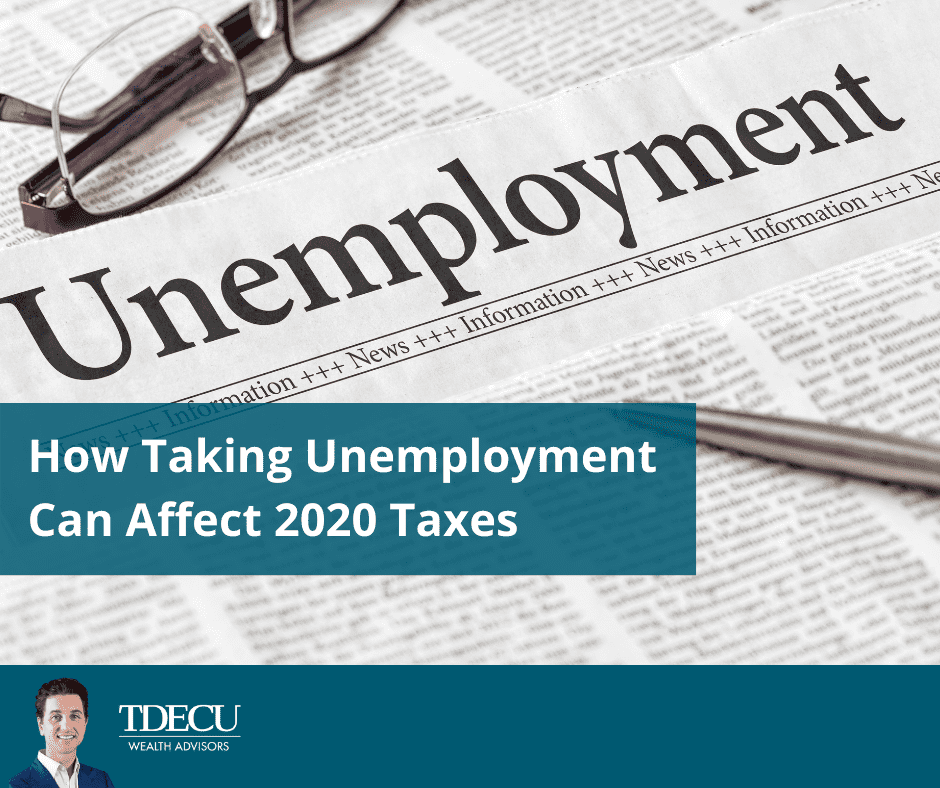With the global pandemic leaving millions of people in the U.S. without jobs, unemployment numbers hit an all-time high. To help ease the burden for many jobless Americans, the federal government also included an additional $600 per week in pandemic unemployment insurance, helping many people earn a weekly payment higher than their previously earned wages. With the upcoming tax season close at hand, many are left wondering how unemployment may affect their 2020 taxes. Below are just some of the issues you may face at tax time if you were receiving unemployment.
Being Short on Withholding
Unemployment, just as other wages, are subject to federal taxes and state income taxes. When filing for unemployment, you had the option to withhold 10% of the payment to cover their tax liability. You also have the option of paying taxes you owe on unemployment quarterly the same way you would for freelance income. Unfortunately, with many households in need of all possible funds to get through the pandemic, many opted to not have taxes withheld. This may result in a high tax bill to repay these taxes at the end of the year.
Losing Previous Tax Credits
Working individuals with lower incomes would often qualify for some amount of earned income credit when filing their taxes. This credit results in additional funds with your tax return ranging from $538 to $6,660 for the 2020 tax year, depending on your number of dependents and adjusted gross income. With the pandemic unemployment providing many with more income than they had made in previous years, they stand the possibility of having made too much to receive their Earned Income Tax Credit (EITC). For the 2020 year, single filers with no children will need earnings of less than $15,820 to qualify, and single filers with three kids will need to make less than $50,594.
While the additional pandemic unemployment money provided much-needed funds for many people across the country, it may lead to issues when it is time to file tax returns. Some people may find themselves with too little withheld, too much income to qualify for credits, or even too much to stay in the same tax bracket that they previously were in, which may lead to unexpected tax bills instead of returns. Interested in learning more about how your unemployment may affect your 2020 tax situation? Contact us today to discuss your specific tax situation,
Have specific questions? Don't hesitate to reach out to me today
Wes Garner, CRPC
Principal Wealth Strategist
(281) 269-8669
wgarner@tdecu.org

Important Disclosures:
The opinions voiced in this material are for general information only and are not intended to provide specific advice or recommendations for any individual. To determine which investment(s) may be appropriate for you, consult your financial professional prior to investing. All performance referenced is historical and is no guarantee of future results. All indices are unmanaged and cannot be invested into directly.
The information provided is not intended to be a substitute for specific individualized tax planning or legal advice. We suggest that you consult with a qualified tax or legal advisor.
All information is believed to be from reliable sources; however, LPL Financial makes no representation as to its completeness or accuracy.
Sources
https://www.cnbc.com/2020/08/01/receiving-unemployment-payments-tax-season-might-cost-you-next-year.html
Content Provider: WriterAccess
LPL Tracking: 01-05079412
